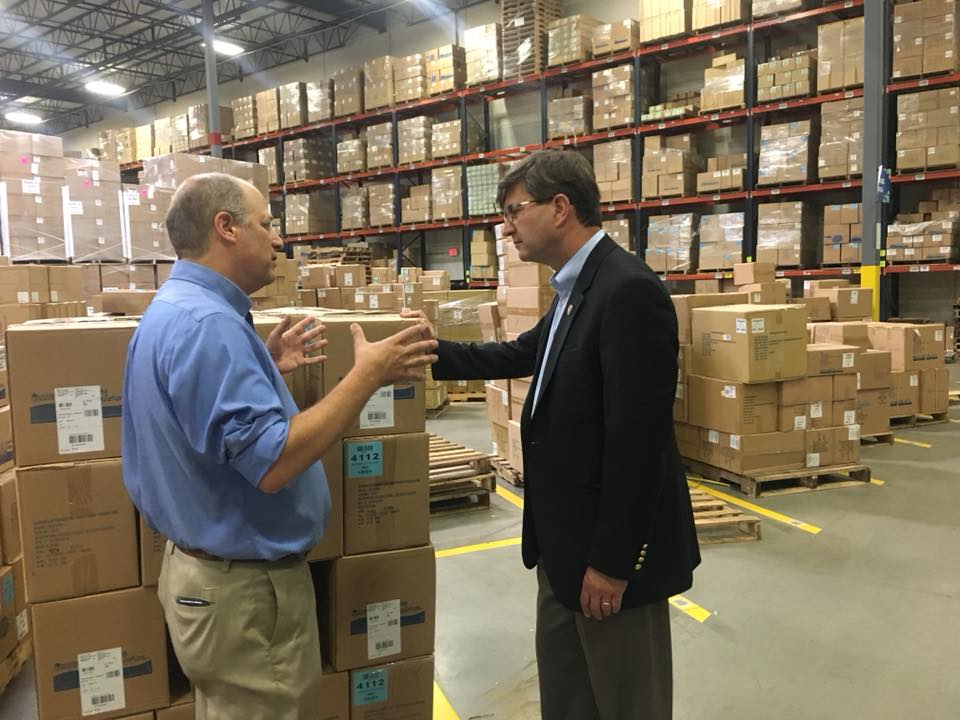Trump Tariffs are Hurting Illinois Businesses – I’ve Seen It Firsthand

September 19, 2018
By Rep. Brad Schneider (IL-10)
President Trump’s irresponsible trade war continues to spiral further out of control, and while the adverse effects are being felt by American businesses large and small, the ultimate victims of the President’s erratic trade policies are likely to be American workers. It is turning out you cannot tweet your way out of a trade war.
The President has blustered that “trade wars are good, and easy to win,” but the results of his foray into knee-jerk protectionism are proving the opposite. For evidence, look no further than his floundering attempt to renegotiate NAFTA. Instead of engaging in a meaningful multilateral dialogue to modernize NAFTA, President Trump recently announced a vague new agreement with Mexico and is now desperately trying to bring Canada onboard.
I saw the effects of the Administration’s half-baked trade policies firsthand during a tour of eight businesses in the suburban Chicago district I represent. I sought out these visits to better understand the impact of tariffs and how employers are adapting to the challenging trade environment created by the President.
While each business was distinct, they all shared a common message: tariffs are creating uncertainty, raising the cost of doing business, and making it harder to hire new people and expand their operations.
These concerns were true across the businesses I visited. A large manufacturer saw a 30-40% increase in the cost of inputs used in their products. The price increases run in the millions of dollars, and their sales team is now spending more time fighting to keep current customers rather than cultivating new ones.
A medium-sized, family-owned and operated educational products company shared how they were scrambling to redesign products to eliminate inputs whose prices have risen due to tariffs. Such rework increases costs and delays the introduction of new products.
The cost of these policies is felt in more than just price, but also time and opportunity. Understanding and reacting to the President’s constantly escalating trade policies has diverted employee resources and energy. Rather than concentrating on innovating and growing, American businesses are instead working to manage the uncertainty.
As one employer put it to me, “I never thought I’d be in competition against my own government.”
That’s one reason I introduced legislation earlier this year to allow businesses hurting from tariffs to seek help through the Trade Adjustment Assistance for Firms program, which helps employers develop business plans to adapt.
Unfortunately, mitigating the harms of these tariffs presents challenges for businesses beyond overcoming President Trump’s stubbornness. Many businesses have already made decisions in order to minimize and absorb the cost of the Administration’s policies, including purchasing inventory at tariff-inflated prices. With the tap of his thumbs, President Trump could leave these businesses holding the bag for his Administration’s lack of a coherent trade strategy. Finding an approach to trade enforcement that is more effective and less destructive than tariffs needs to be done with thoughtfulness and predictability that has so far been lacking in the President’s approach to trade.
There’s a better approach to creating trade rules that work for, rather than against American workers. I agree that there are bad actors who take advantage of trade rules, China chief among them, and they deserve to be held accountable. But we will not accomplish that goal by engaging in a tit-for-tat trade war and slapping punitive tariffs, including on our closest international allies.
It’s time to instead strategically engage with our trade partners, end the misguided trade war, and instead enact a sensible, enforceable trade policy that support American workers, American businesses, American intellectual property, and our environment.
Fair trade can open new markets for American-made good and create good-paying American jobs. President Trump needs to get out of his own way.
























